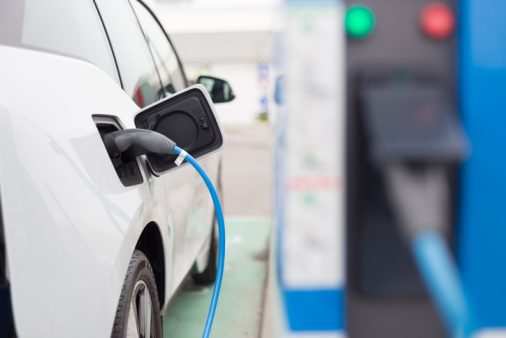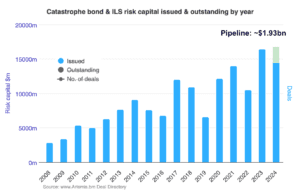Top tips for long journeys in electric vehicles this summer

Nearly two thirds (65%) of UK adults are planning a long road trip this summerSix per cent say they will be travelling in an electric vehicle (EV) and 9% in a hybridThere are now more than 858,000 plug-in cars registered in the UKThree quarters of people (72%) would go no more than three hours before stopping – providing a natural opportunity to rechargeThe average break taken is 26 minutes – enough to recharge a typical EV’s battery to almost 80% capacityThe Highway Code recommends drivers take a break of at least 15 minutes every two hours
Nearly two-thirds (65%) of UK adults are planning a long road trip this summer, a study by insurer Aviva has found, with six per cent planning to make the trip in an electric vehicle (EV), and nine per cent in a hybrid.
Previous Aviva research, released in April 2022, found more UK drivers were planning to buy an EV or hybrid as their next car (58%) than either a petrol or diesel model (43%), but revealed some were put off by fears over limited range, lengthy charging times and of being stranded.
Give us a break
The new study, however, helps allay some of these concerns, finding that most people would typically break the journey anyway, with 72% going for no longer than three hours before stopping.
It reveals an average stop time of 26 minutes, enough for EV drivers to recharge both themselves and their cars. Rapid charge points, often found at motorway service stations and other locations, can typically bring an EV’s battery to 80% capacity in half an hour.
Technological advances mean that today’s EVs have three times the battery range of a decade ago, averaging 257 miles on a single charge.
Matthew Washer, Head of Connected Motor, Aviva says: “We are at a turning point with more people considering a hybrid or fully electric vehicle than a petrol or diesel model, so it’s essential that people are confident about the transition to more sustainable driving.
“However, many people are understandably worried that an EV might run out of charge, leaving them stranded, or that they won’t be able to find a charge point. Obviously, that’s an even greater concern on a long journey.
“But what this new research reinforces is how unusual it would be to even consider making a long trip without stopping, whether that’s to use the toilet, get some food and drink, have a nap or even just stretch your legs.
“While you’re recharging your own batteries, you could be doing the same to your car. More and more public charge points are coming on stream all the time, and plugging in for just a few minutes will often give you enough power to reach your destination – plus you’ll arrive feeling much fresher, too.”
Pulling out the stops
The Highway Code recommends drivers take a break of at least 15 minutes every two hours, and stop in a safe place if they feel sleepy.5
However, the Aviva survey found nearly a third (32%) of those questioned typically go two to three hours before pulling over, while 16% go three to four hours. Worryingly, some would push on further still, despite official advice.
Of those stopping, a third (32%) tend not to plan breaks, saying it depends on the journey and how they and the vehicle’s other occupants feel.
A similar number (30%) consider a break to be an enjoyable part of the journey, while 22% plan theirs to stop in certain spots. That figure is higher (27%) among travellers in EVs, perhaps reflecting the need to find a charge point.
There are 31,507 such points across the UK, according to ZapMap.6 Many more are planned as part of the Government’s Transport Bill, announced in the Queen’s Speech, as the 2030 ban on the sale of new petrol and diesel cars draws nearer.
Sales of EVs and hybrid vehicles are bucking a falling trend in sales and comprised 27.9% of all new car registrations during April, according to the Society of Motor Manufacturers and Traders (SMMT). There are more than 858,000 plug-in cars registered in the UK.7
To help drivers plan their journeys in an EV, Aviva has put together some top tips:
You don’t need to buy a specialist electric car insurance policy – most car insurance policies will cover any fuel type but check your policy covers stolen or damaged batteries and charging cables.Check your breakdown provider – just in case the worst happens and you run out of charge en route to your destination, check that your breakdown cover provides a mobile charging system or is able to recover your electric car to a charging point to help get you back on the road.Find out about charging facilities if you’re taking your car abroad – before you travel, check you’ve got foreign use and breakdown cover, and check the status of charging points in the country you’re visiting. Longer driving distances abroad may mean you need to stop to charge your car more frequently. Download an app, like ZapMap, to see which chargers are available in your area and more importantly which ones are working – often your car charger map won’t provide as much detail as an app.Charge up your car before you set off – it’s generally more expensive to charge at a motorway station than at home or local chargers, so be sure to set off with a full charge before hitting the motorway if you’re going on a long journey.Did you know there’s charging etiquette when you’re out and about? Try not to leave your car charging unnecessarily so that other drivers can charge, too. Once your car has finished charging, move it to a standard parking space if you’re staying at the service station or car park for longer.Check payment options for each charging provider – some will let you pay-as-you-go; others will require a subscription and some chargers are free. Make sure you don’t accidently sign up to a charging provider that takes payment on a regular basis if you’re not going to use that provider very often.Heat up your car or cool it down before you set off – if it’s hot in summer and you want to cool down your car, or heat it up in winter, do this while you’re still at home and charging from your home energy supply. This will help to get the car to the right temperature before your start your drive and will save valuable battery power.Top up your EV charge little and often – don’t always wait for the battery to run down and charge it up from zero. It’s not the same as charging your phone or other electrical appliances you might own and you can’t overcharge your battery.Set a level for ‘regenerative charging’ – regenerative braking – charging your battery when you’re braking – will have an impact on your range and could give you more battery power. This is particularly true in urban areas due to the volume of start / stop you’re likely to make.
Aviva’s electric car insurance policies include a lifetime repair guarantee, accidental damage protection and cover electric vehicle accessories. For more information, go to Electric Car Insurance – Aviva.





